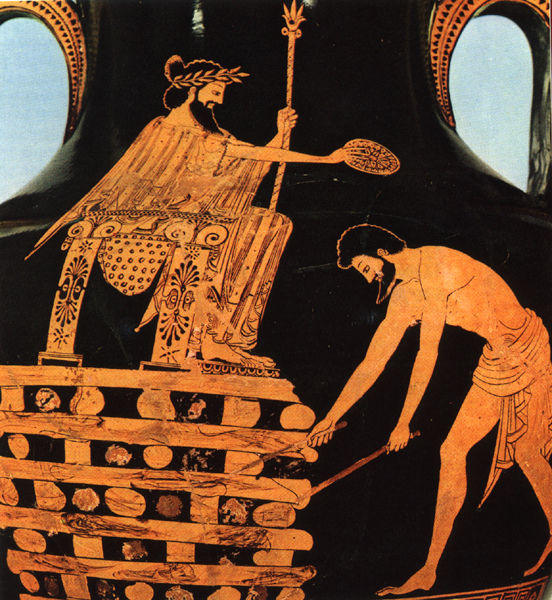
Greek 101 introduces the student to one of the greatest prose authors of ancient Greece, the historian, Herodotus. The “Father of History”, as Herodotus is sometimes called, wrote one of the earliest lengthy prose texts extant in Greek literature in the Ionian dialect of Greek. His historie or inquiry into the events surrounding the invasions by the Persian empire against the Greek city-states set the precedent for all subsequent historical writings, although his aims and methods have always remained controversial (as the sneers of his near contemporary, Thucydides, attest). The “Father of Lies”, as he is also sometimes known, wove into his history a number of fabulous and entertaining anecdotes and tales. Although these stories have often been dismissed as meaningless digressions or credulous traveler's tales, each story is neatly crafted within the larger framework of the work, not only providing interesting diversions for the reader but linking together many of Herodotus' themes and ideas within the work. Herodotus remains the primary (and often only) source for much information about the culture and history of Greece and the other societies around the Mediterranean basin in the Archaic period.
Through reading the prose narrative of Herodotus, students will gain fluency in the reading of ancient Greek prose and develop strategies for the comprehension of the text. The class will provide opportunities to review the morphology and syntax of the Greek language and to build upon the vocabulary learned in the first year, as well as to learn the differences in Herodotus’ Ionian dialect from the dialects of Attic and Koine. Students will also expand their understanding of the cultural context in which Herodotus worked, as well as the tradition of historiography that stems from his work. The course will also introduce students to the tradition of scholarship, starting in antiquity, that has examined Herodotus and to the tools with which scholars ancient and modern have used to understand his narrative.
Through reading the prose narrative of Herodotus, students will gain fluency in the reading of ancient Greek prose and develop strategies for the comprehension of the text. The class will provide opportunities to review the morphology and syntax of the Greek language and to build upon the vocabulary learned in the first year, as well as to learn the differences in Herodotus’ Ionian dialect from the dialects of Attic and Koine. Students will also expand their understanding of the cultural context in which Herodotus worked, as well as the tradition of historiography that stems from his work. The course will also introduce students to the tradition of scholarship, starting in antiquity, that has examined Herodotus and to the tools with which scholars ancient and modern have used to understand his narrative.
- Instructor of record: Radcliffe Edmonds
